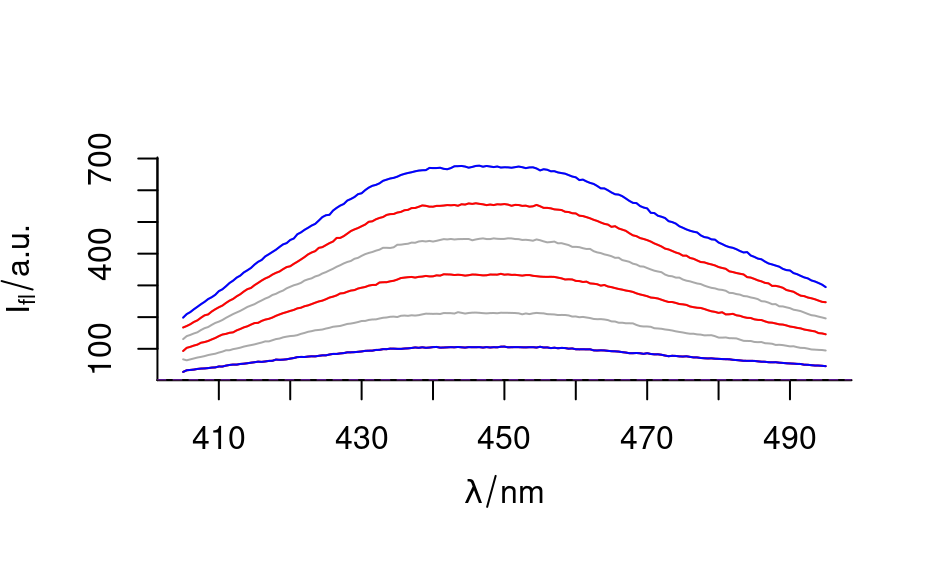This function generates sequences along the spectra (rows) or wavelengths of
hyperSpec objects.
# S3 method for hyperSpec
seq(x, from = 1, to = nrow(x), ..., index = FALSE)Arguments
- x
the
hyperSpecobject- from, to
arguments handed to
base::seq.int()- ...
arguments for
base::seq(), namelyby,length.out- index
should a vector with indices be returned rather than a
hyperSpecobject?
Value
a numeric or hyperSpec object, depending on index.
Details
Note that wl2i() generates sequences of indices along the wavelength axis.
seq() had to be implemented as S3 method as the generic has only ...
arguments (on which no dispatch with differing types is possible).
base::seq_along() is not generic, but returns a sequence of the length
of the object. As hyperSpec provides a Method length(), it can be used.
The result is a sequence of indices for the spectra.
See also
wl2i() to construct sequences of wavelength indices.
Examples
seq(flu, index = TRUE)
#> [1] 1 2 3 4 5 6
seq_along(flu)
#> [1] 1 2 3 4 5 6
seq(flu, length.out = 3, index = TRUE) # return value is numeric, not integer!
#> [1] 1.0 3.5 6.0
seq(flu, by = 2, index = TRUE) # return value is numeric, not integer!
#> [1] 1 3 5
plot(flu, col = "darkgray")
plot(seq(flu, by = 2), add = TRUE, col = "red")
plot(seq(flu, length.out = 2), add = TRUE, col = "blue")
 ### needs to be an S3 function as S4 ... dispatch has to have the same
### signature for all parameters
### needs to be an S3 function as S4 ... dispatch has to have the same
### signature for all parameters